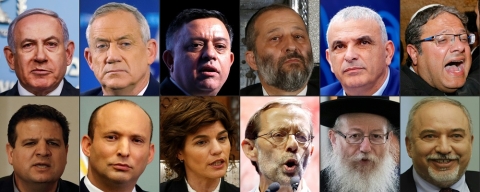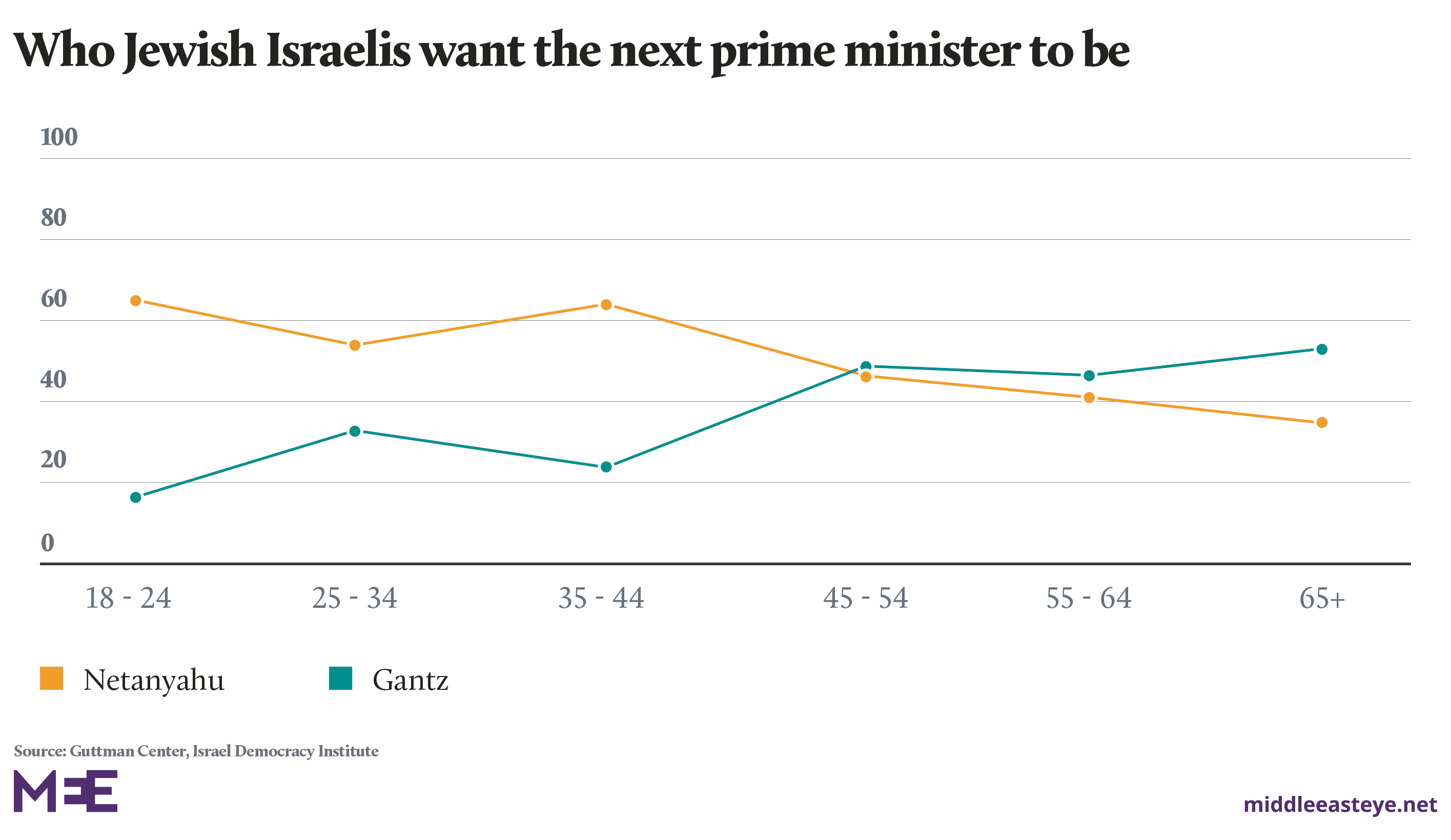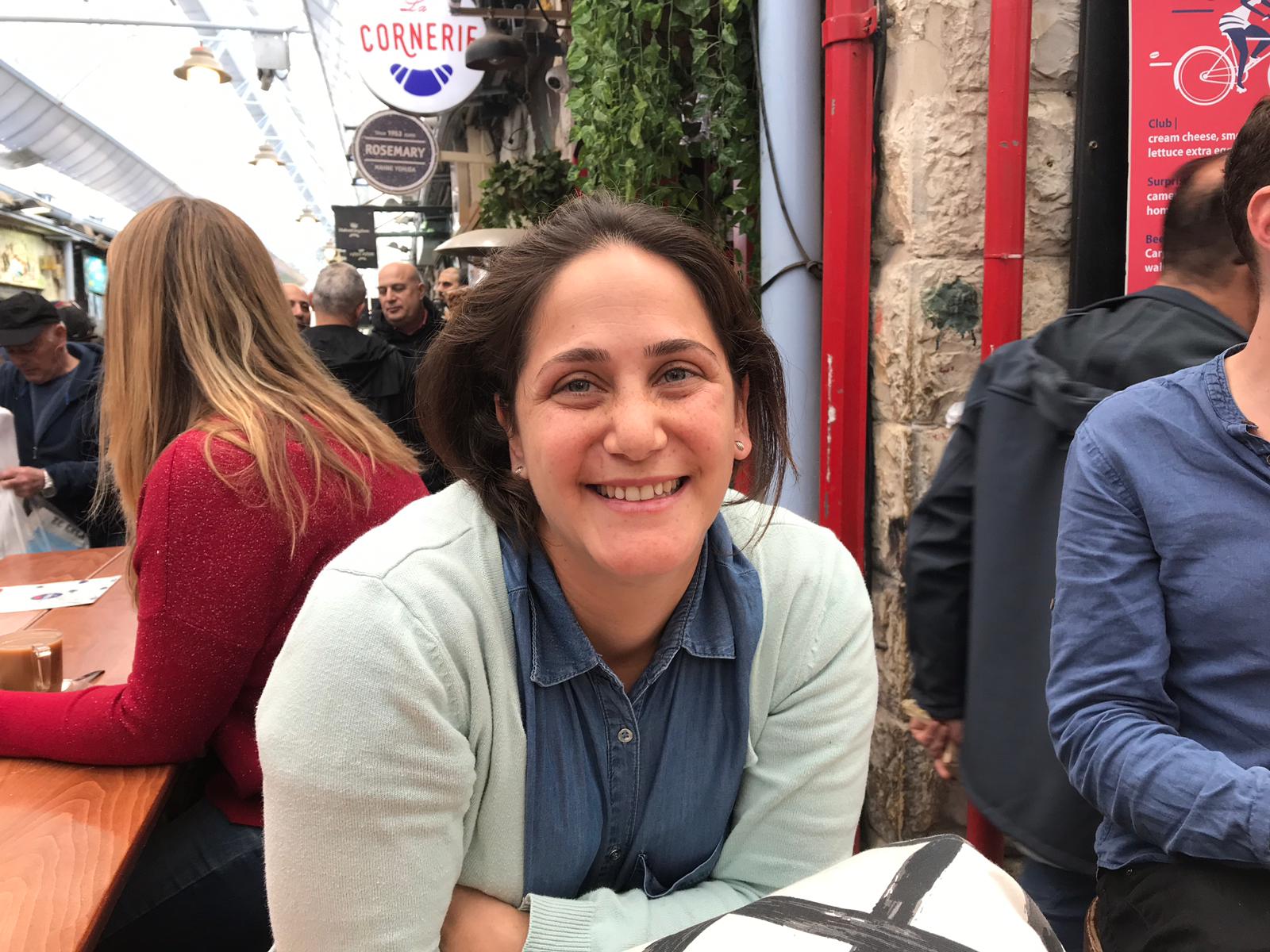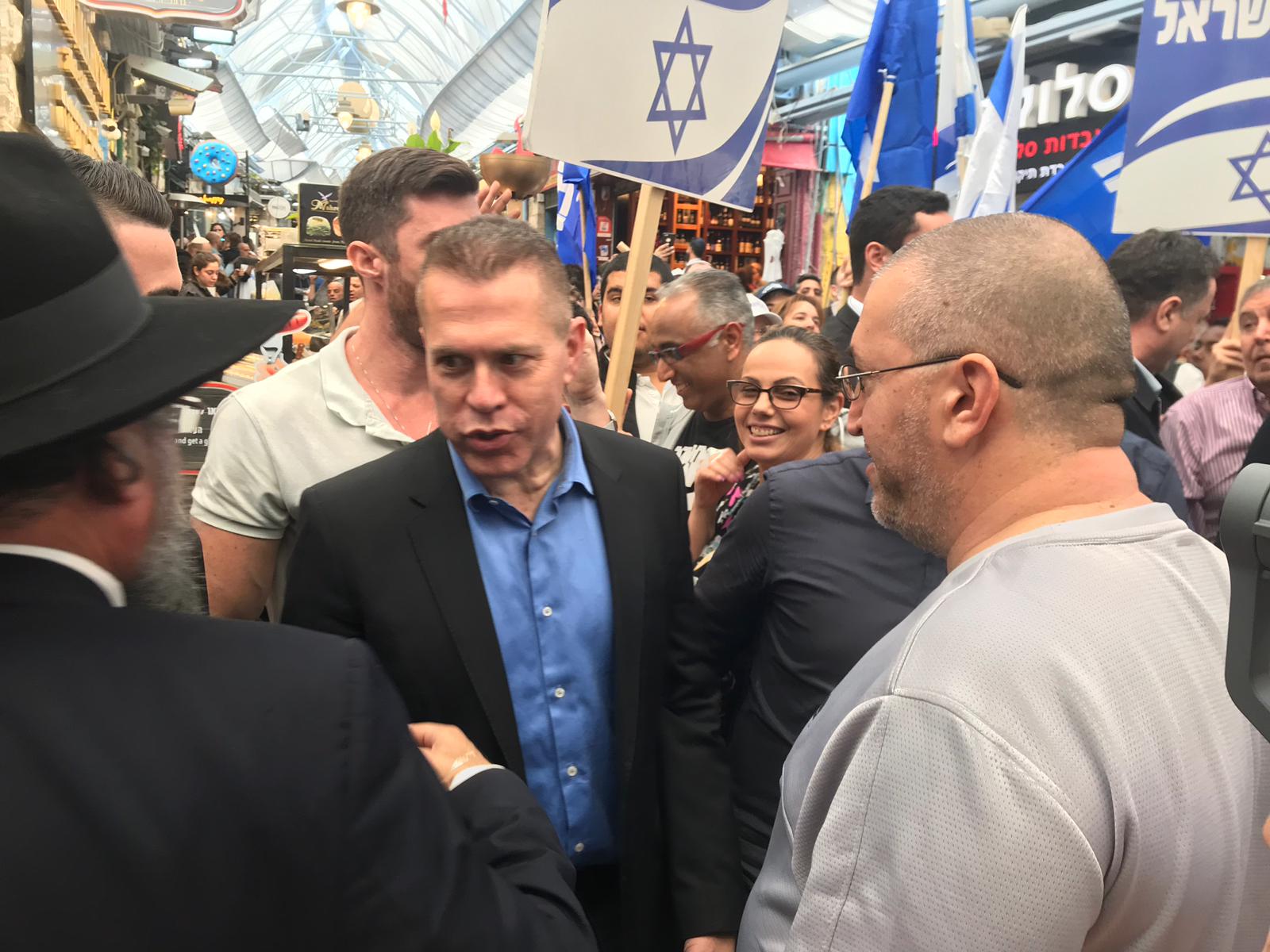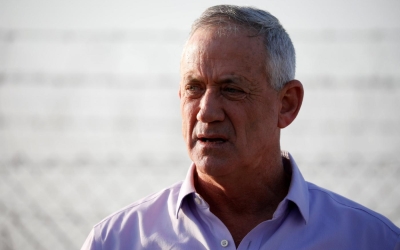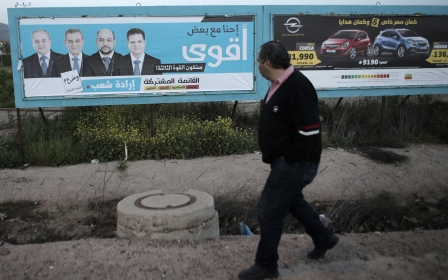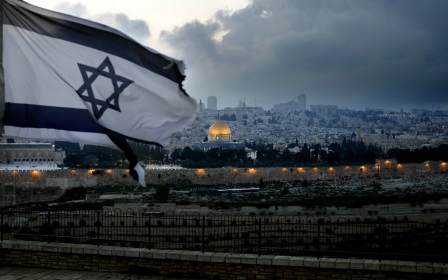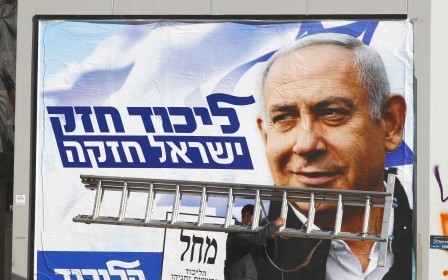Meet the right-wing youth who are going to shape Israel’s future
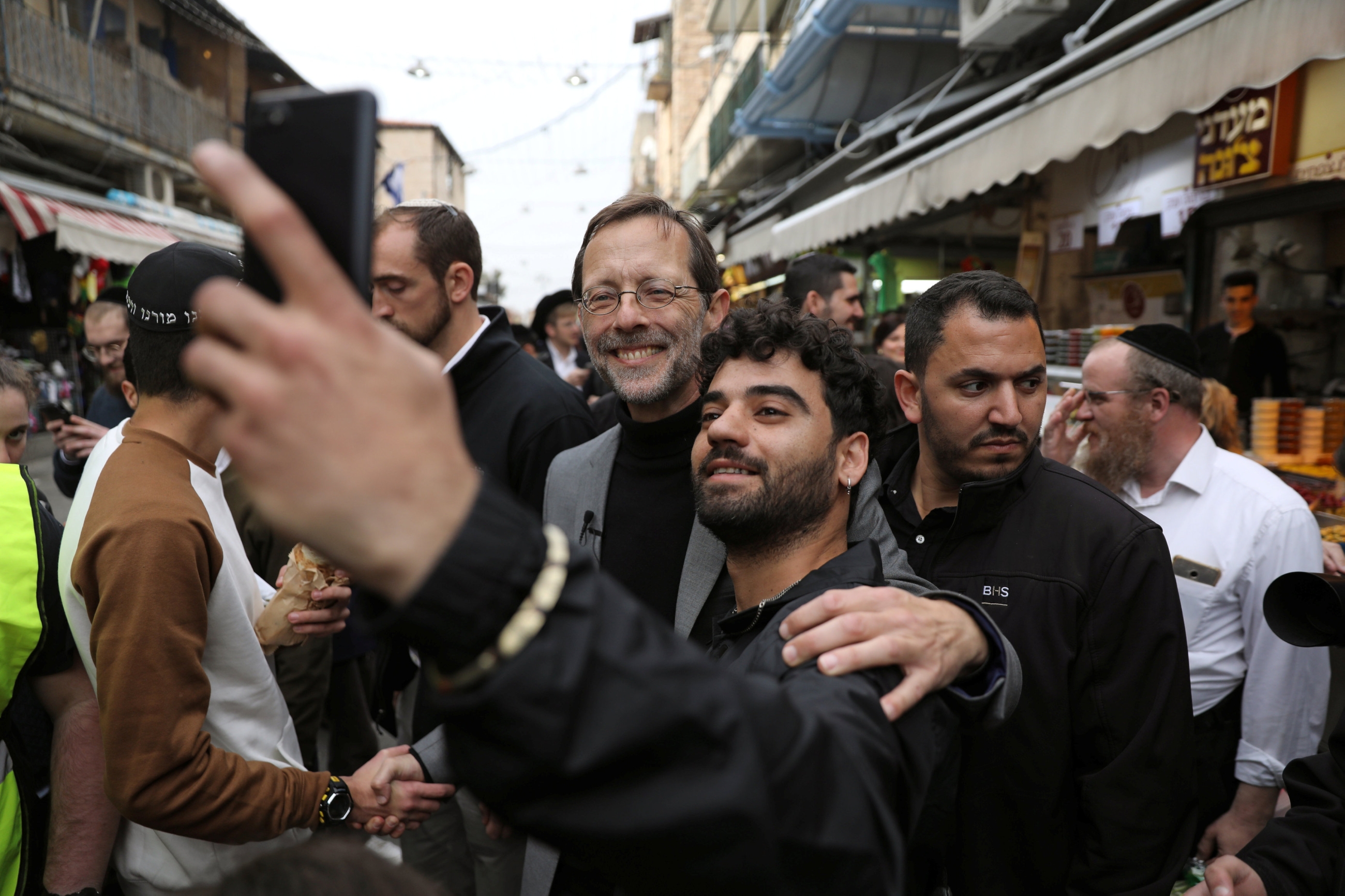
It’s Friday, Shabbat is coming up, and elections are round the corner. So naturally, the Mahane Yehuda market is buzzing.
Israelis from across the country are here, stocking up for the weekend and soaking up the sights and smells in the covered alleyways.
At one stall, a man with a yoga mat tucked under his arm inspects some tomatoes. Next to him, another carries an assault rifle instead.
Hundreds of youths are spread across the 1920s-era covered market, one of West Jerusalem's most popular meeting spots. They’re drinking beer, sipping cappuccinos and exchanging gossip.
And Israel’s politicians are here to meet them.
New MEE newsletter: Jerusalem Dispatch
Sign up to get the latest insights and analysis on Israel-Palestine, alongside Turkey Unpacked and other MEE newsletters
How do Israeli elections work?
+ Show - HideIsraelis will head to the polls on 9 April to elect candidates to its 120-seat parliament, the Knesset. It will be the second election in just four years, after under-pressure Prime Minister Benjamin Netanyahu called early polls.
Voters will vote for parties, not individual candidates; the more votes a party gets, the more Knesset seats. Click here for profiles of the parties and the candidates.
Since no single party has ever captured more than the 60-seat threshold to form a government on its own, coalitions are an established part of political life. This makes Israel’s election a free for all, with some 47 parties competing this year alone. Parties must receive at least 3.25 percent of the popular vote in order to gain a seat in the Knesset.
After the election, Israel’s president will consult with party leaders to determine which coalition is most likely to form a stable government. The president will also nominate the prime minister, who is usually the head of the party that won the most seats.
Arriving to a blare of music, Foreign Minister Yisrael Katz tours the stalls, shaking hands with passers-by and offering them selfies.
Just behind him is Gilad Erdan, security and information minister, who like Katz belongs to Prime Minister Benjamin Netanyahu’s Likud and is trying to drum up support for the party ahead of elections on Tuesday.
He shouldn’t have too much trouble. Mahane Yehuda market, also known as “the Shuck”, is the kind of place where greengrocers have four-foot photos of Menachem Begin, the right-wing former prime minister, on the wall.
And when it comes to Israel’s youth, Likud has a head start.
A new poll published this week shows young Israelis are far more likely to vote for Netanyahu than his more centrally-minded challenger, Benny Gantz. In the age bracket of people aged 18-24, the prime minister was beating the ex-army chief by nearly 50 points.
The challenge for Katz and Erdan, as they meet and greet their young electorate, is whether they can convince them that Likud, which has overseen the most right-wing government in Israeli history, is sufficiently to the right.
“Likud is right, but not right enough,” Tamar Rate-Etzyon, a 29-year-old settler, landscape architect and archaeologist, tells Middle East Eye.
'These are my people and they’re loyal to their voters. I won’t lie to myself because I don’t want to be called an extremist'
- Tamar Rate-Etzyon, 29
Rate-Etzyon, who lives in an illegal Israeli settlement in the occupied West Bank, says she’s going to be casting her vote for the Union of Right-Wing Parties, a collection of fringe factions that controversially includes the followers of Jewish supremacist Meir Kahane, who sought to rid Israel of Arabs.
One Kahanist, Michael Ben-Ari, was disqualified from running by the Supreme Court over accusations of "calling for a violent renunciation of the Arab population's rights" and "incitement to racism".
Another, Itamar Ben Gvir, survived a judicial review and is strolling through Mahane Yehuda market, surrounded by flag-waving teens handing out leaflets calling on an end to “the power of the Supreme Court”.
“These are my people and they’re loyal to their voters,” Rate-Etzyon says. “I'm religious and I have faith in my beliefs. I won’t lie to myself [and vote for someone else] because I don’t want to be called an extremist.”
Keeping out the left
Elsewhere are two 17-year-old boys with Ben-Ari and Ben Gvir’s images on their T-shirts.
The pair, who come from the settlement of Eli near Nablus in the West Bank, aren’t old enough to vote. But if they did, they’d be voting Likud, despite their attire and believing Netanyahu isn’t right wing enough.
Though this year’s polls have come too early for Amos and Ori*, they are just months away from enlisting in Israel’s military, and are inspired by candidates vowing a violent crackdown on Palestinians in the West Bank and Gaza Strip.
“We should punish the Arabs so they behave themselves,” says Amos. “Killing Arabs is a religious duty.”
Amos believes that peace with the Palestinians is simply not an option, and thinks that Jews and Arabs should be totally separated.
“Israelis have no other choice than to vote Likud,” says Ori. “The most important thing is to keep the left out.”
'We should punish the Arabs so they behave themselves. Killing Arabs is a religious duty'
- Amos, 17
Not everyone is so far right, of course. But two young men nearby only admit they are voting for Gantz’s centre-right Blue and White slate in hushed tones.
The 26-year-olds are from notoriously liberal enclave Tel Aviv. “That’s why we’re speaking like this,” one says.
Evidence of Jerusalemite disdain for the Mediterranean city can be seen moments later, when a row breaks out in the crush that surrounds Katz and Erdan.
“Fuck you leftist, go back to Tel Aviv,” someone shouts at a photographer trying to capture Erdan waving his finger at an ultra-Orthodox man.
“Who you calling a leftist? You’re the leftist!” comes the reply.
Bucking the trend
“Leftist” has become a common slur in Israeli society, explains the Academic College of Tel-Aviv-Yaffo’s Dr Noa Lavi, despite it being a label worn proudly by many of Israel’s early leaders.
“The past 10 years have seen a lot of propaganda against the left,” she tells MEE. “Being left wing is now seen as being a traitor.”
In 2016, Lavi published a study into Israel’s youth, finding them the most right-wing compared to countries in Western Europe.
After conducting a survey of Israelis aged 18-29 and comparing it with a similar study in Europe, Lavi found that only the Czech Republic and Hungary came close.
Lavi notes that in the United States, those born between 1995 and 2008, known as 'Generation Z', show signs of being the most liberal and democratic people in their country. In Israel, it’s the reverse.
“There are lots of complex reasons for this trend,” Lavi says.
'For the past ten years or so, young Israelis have been living under a very, very right-wing government. It’s all they know'
- Dr Noa Lavi, academic
“For the past ten years or so, young Israelis have been living under a very, very right-wing government. It’s all they know.
“Meanwhile, education tends to be very, very Zionist but doesn’t encourage critical thinking. The media and military service, too, plays a big part.”
Religiosity, Lavi says, is also a contributing factor. Her study found that the Israeli youth – both Jewish and Palestinian – are the second-most religious in Western Europe, after Poland.
“Religiousness goes hand in hand with right-wing views,” she says.
Creeping mistrust
Just because Israel’s youth are overwhelmingly right-wing, doesn’t mean they’ll all give parties such as Likud their votes, however.
Arial, a 20-year-old off-duty soldier sitting in a cafe with his gun hanging from his shoulder, says he’s sick of Israel’s corrupt politicians.
Netanyahu, in particular, has been dogged with corruption allegations, which many analysts believe lie behind his call for early elections.
“Again and again, we are not given anything new,” says Arial, who is from Jerusalem and describes his political views as “to the right”.
“Everyone who has been voted in are liars. All they care about is money and power, they don’t care about citizens.”
According to a poll by the Israel Democracy Institute’s Guttman Centre, trust in the elections is low. Over a quarter of respondents said they don’t trust the “integrity” of the elections.
Arial, for one, won’t be voting.
“It doesn’t matter who is elected, they’re all the same,” he says.
“Netanyahu is a weak centrist.”
*Some names have been changed
This article is available in French on Middle East Eye French edition.
Middle East Eye delivers independent and unrivalled coverage and analysis of the Middle East, North Africa and beyond. To learn more about republishing this content and the associated fees, please fill out this form. More about MEE can be found here.


